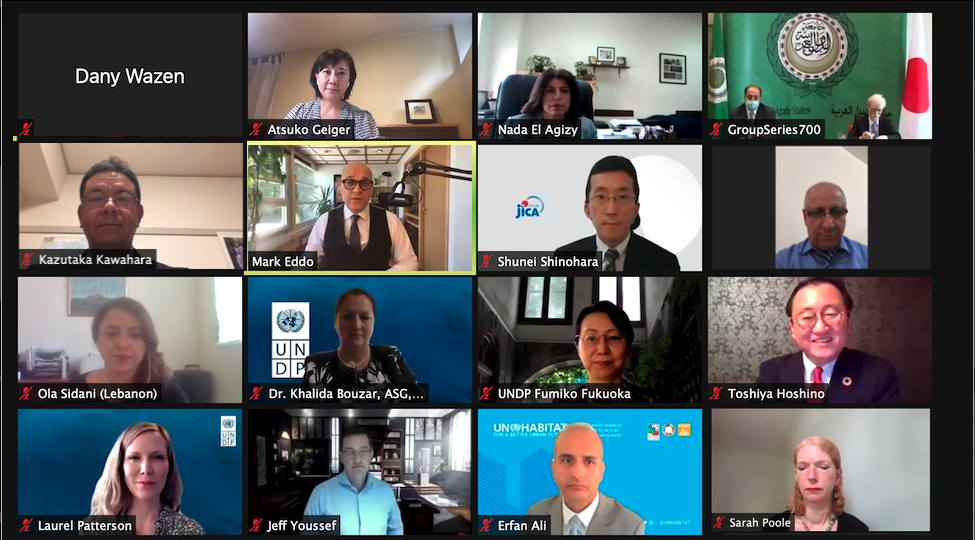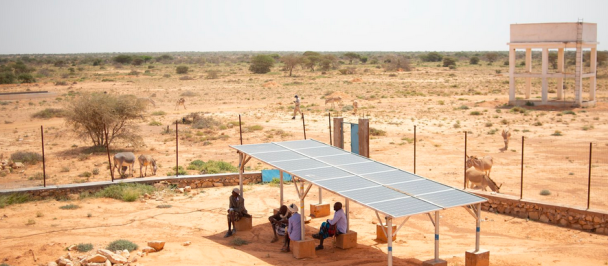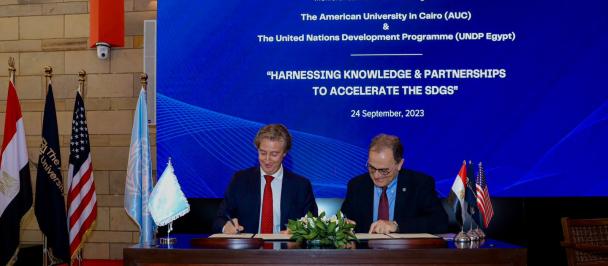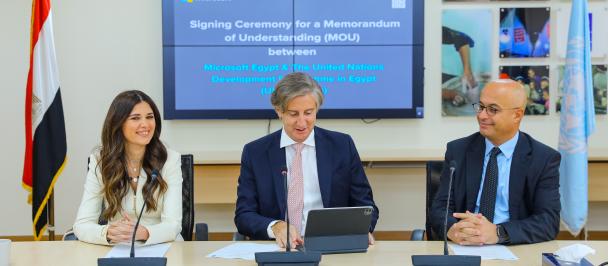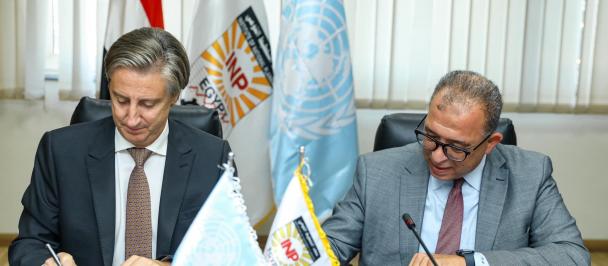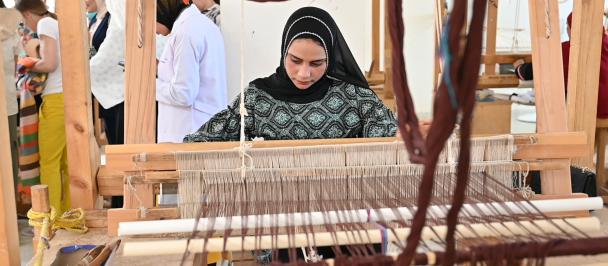Investment in sustainable infrastructure seen as potential driver of needed progress
LAS-Japan-UNDP policy roundtable discusses support for acceleration of SDGs in the Arab States as region seeks to recover from impacts of COVID-19
July 12, 2021
The League of Arab States (LAS), the Government of Japan (GOJ) and the United Nations Development Programme (UNDP) convened its 5th tri-partite high-level policy roundtable today to discuss priorities for achieving sustainable and inclusive development in the Arab States as the region seeks to recover from the impacts of COVID-19. In view of the scope of development challenges facing the region, the partners committed to accelerate joint efforts to achieve the Sustainable Development Goals. Increasing investment in sustainable infrastructure was identified as a key potential driver of needed progress towards a greener, more inclusive future across the Arab States region.
The roundtable comes as the region continues to grapple with the impacts of COVID-19, and as the partners continue to seek to focus efforts to support sustainable recovery at the policy level, even in the hardest-hit areas, including those affected by conflict.
Delegates stressed the need for comprehensive and long-term visions to seize the current crisis as an opportunity for policy transformation, for increased coordination and as a pivot point for the acceleration of SDGs achievement in the coming decade.
“The COVID-19 pandemic has widened the gap from the achievement of Agenda 2030. Many Arab countries have faced enormous challenges especially those affected by conflict leading to aggravating the socio-economic impact of the crisis. The recovery from the pandemic will be an opportunity for “building back better”, by implementing the principles of sustainable reconstruction based on the three pillars of the SDGs” said Ambassador Hossam Zaki, Assistant Secretary General of the League of Arab States.
“We should take this challenge as an opportunity to lay a basis of sustainable reconstruction, which would rather accelerate progress across all SDGs”, said Ambassador Masaki Noke, Ambassador of Japan to Egypt. He touched upon, in this context, Japan’s assistance of about 290 million USD to the Arab countries with a view to preventing the spread of COVID-19 and mitigating its social and economic impact. Ambassador Noke also underlined the importance of integrating the concept of quality infrastructure into development planning in accordance with international standards such as openness, transparency, economic efficiency, and debt sustainability. “Such infrastructure”, he stressed, “will be certainly more cost effective and economically viable in the mid-long term and be therefore of benefit to our children in the region and beyond”.
Convening representatives from the three partners, along with LAS member states, UN agencies, and the private sector, the roundtable underscored the importance of cross-regional and cross-sectoral cooperation in fast-tracking recovery from the pandemic and crisis and in accelerating the progress towards the 2030 Agenda.
“Strengthening partnerships and coordination on areas such as sustainable infrastructure is of pivotal importance as the development community seeks to accelerate progress towards the SDGs. COVID-19 has set progress back, but it also calls upon us to redouble our efforts and scale-up our support for sustainable and inclusive development. I trust that today’s policy dialogue between the League of Arab States, Japan and the United Nations Development Programme will help us come together to support the acceleration of progress that the region needs”, said Khalida Bouzar, Assistant Secretary-General and Director of the Regional Bureau for Arab States, UNDP.
The virtual roundtable was part of the policy dialogue series launched by the tri-partite partnership in 2019, following the successful conclusion of the first Arab-Japan Political Dialogue held in September 2017. The roundtables series aims to enhance cooperation between Japan and the Arab States and to establish a policy dialogue platform encompassing common development priorities and concerns in relation to the region.

 Locations
Locations